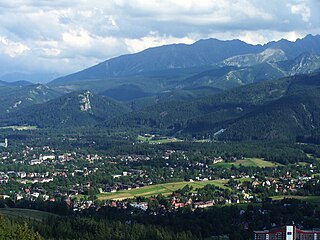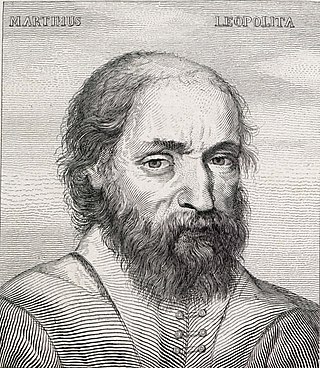Zygmunt Szweykowski may refer to:
- Zygmunt Szweykowski (historian) (1894–1978), Polish historian, father of Szweykowski (1894–1978)
- Zygmunt Szweykowski (musicologist) (1929–2023), Polish musicologist, son of Szweykowski (1929–2023)
Zygmunt Szweykowski may refer to:

Zakopane is a town in the south of Poland, in the southern part of the Podhale region at the foot of the Tatra Mountains. From 1975 to 1998, it was part of Nowy Sącz Voivodeship; since 1999, it has been part of Lesser Poland Voivodeship. As of 2017 its population was 27,266. Zakopane is a centre of Goral culture and is often referred to as "the winter capital of Poland". It is a popular destination for mountaineering, skiing, and tourism.

Aleksander Głowacki, better known by his pen name Bolesław Prus, was a Polish novelist, a leading figure in the history of Polish literature and philosophy, as well as a distinctive voice in world literature.

The Adam Mickiewicz University is a research university in Poznań, Poland. Due to its history, the university is traditionally considered among Poland's most reputable institutions of higher learning, this standing equally being reflected in national rankings.

"Mold of the Earth" is one of the shortest micro-stories by the Polish writer Bolesław Prus.
"Shades" is one of Bolesław Prus' shortest micro-stories. Written in 1885, it comes from a several years' period of pessimism in the author's life caused partly by the 1883 failure of Nowiny (News), a Warsaw daily that he had been editing less than a year. Prus, the "lamplighter" who had striven to dispel darkness and its attendant "fear, errancy, and crime," had failed to sufficiently interest the public in his "observatory of societal facts," Nowiny.

Pharaoh is the fourth and last major novel by the Polish writer Bolesław Prus (1847–1912). Composed over a year's time in 1894–95, serialized in 1895–96, and published in book form in 1897, it was the sole historical novel by an author who had earlier disapproved of historical novels on the ground that they inevitably distort history.
Zygmunt Szweykowski was a historian of Polish literature who specialized in 19th-century Polish prose.
"A Legend of Old Egypt" is a seven-page short story by Bolesław Prus, originally published January 1, 1888, in New Year's supplements to the Warsaw Kurier Codzienny and Tygodnik Ilustrowany. It was his first piece of historical fiction and later served as a preliminary sketch for his only historical novel, Pharaoh (1895), which would be serialized in the Illustrated Weekly.
Zygmunt, Zigmunt, Zigmund and spelling variations thereof are masculine given names and occasionally surnames. It has the same etymology as the Germanic name Zigmund. People so named include:
Haupt is a German surname. Notable bearers include:

The Wieliczka Salt Mine is a salt mine in the town of Wieliczka, near Kraków in southern Poland.
Polish poetry has a centuries-old history, similar to the Polish literature.
"Fading Voices" is an 1883 short story by the Polish writer Bolesław Prus, the leading representative of Realism in 19th-century Polish literature.
Chmielewski is a Polish surname meaning "one from the place of the hops". In other Slavic languages it may be transliterated as Khmelevsky, Khmelevskiy or Hmelevsky (masculine). The feminine form is Khmelevska or Hmelevska in Ukrainian and Khmelevskaya or Hmelevskaya in Russian. Notable people with the surname include:

Marcin Leopolita was one of the most eminent Polish composers of the 16th century. He attended the Jagiellonian University and may have studied under the Polish composer Sebastian z Felsztyna and Jan Jelen of Tuchola.

Kajetan Abgarowicz ; 7 August 1856 – 27 July 1909) was a Polish journalist, novelist and short story writer of Armenian descent.
Hofmann is a German surname. Notable people with the surname include:
Zygmunt Marian Szweykowski was a Polish musicologist and academic. Described as "one of the leading Polish musicologists of his generation", Szweykowski specialized in Renaissance and Baroque music.